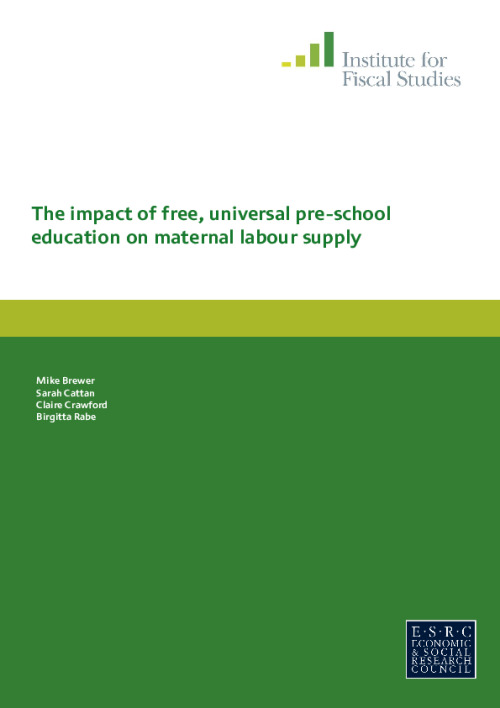We estimate the impact of free, universal pre-school education for three year olds on maternal labour supply in England, exploiting discontinuities arising from date of birth eligibility cut-offs and geographical variation in the speed at which the entitlement effectively covered all children. The impacts using geographical variation in the roll-out imply that the expansion of the free entitlement, which increased the proportion of children in England who could access free part-time early education by around 50 percentage points between 2000 and 2008, led to a rise in the employment rate of mothers whose youngest child is 3 years old of around 3 percentage points, equivalent to about 12,000 more mothers in work. Given the estimated rise in the fraction of three year olds using some form of early education over the period, the implied IV estimate is that those mothers who used early education only because it was free were 25 percentage points more likely to work thanks to the free entitlement: although this is very imprecisely estimated, this is in the mid to upper range of estimates from studies from other countries, many of which look at the impact of access to longer hours of pre-school care.
This report was presented as evidence to the House of Lords Select Committee on Affordable Childcare, 22 October 2014 and is also published on the ISER website.













